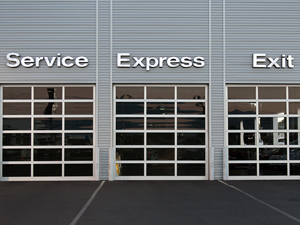
With the rapid increase of the COVID-19 Omicron variant, provincial governments are re-imposing strict public health measures to help curb the spread—bringing some dealers closer to their early pandemic essential service status.
For example, Quebec is dealing with record-breaking daily COVID infections and recently imposed measures that saw the closure of bars, taverns, gyms, schools, and theatres this week, while restaurants did not fully shut down but are more restricted.
Canadian auto dealer reached out to a dealership in the Montreal, Que., area to better understand the provincial government’s latest update and what that means for dealers in the province.
The store’s receptionist said their in-dealership capacity was reduced from 20 people to 12, and that they maintained their service-by-appointment approach. Customer seating areas are also more spaced out than before, and the dealership is offering more shuttle service.
Dealerships, retail stores, and shopping centres remain open for now, but with a reduced capacity of one client per 20 square metre of the sales area—as of the provincial government’s December 20 update.
But with the daily count expected to reach or surpass 9,000 new infections, dealers in the province may need to prepare for the possibility of stepping back into an essential service status and shifting their sales focus more online again.
Robert Poëti, President and CEO of the CCAQ (La Corporation des concessionnaires automobiles du Québec), said they are keeping tabs on government announcements as they have done since the beginning of the pandemic, and they are making sure that dealers receive the information.
Even with the high case count, he does not see dealerships fully shutting down like other businesses.
“Essential trips for citizens, outside the holiday period, are much like we experienced last year and the previous year, where a single person had to go pick up medication or pick up groceries for the grandparents, or bring children to the doctor,” said Poëti in an interview with Canadian auto dealer, adding that, like these trips, a vehicle is also essential.
He said if a vehicle stalls or if there is a problem with the vehicle, consumers must be able to go to the dealership and get it fixed.
“At this time, dealers will always be present to help the citizens of Quebec get their vehicle repaired, even in times of COVID, because these trips (to the dealership) are essential,” said Poëti. “Not all of them are, but there are several that are.”
Poëti said many are equipped or have adapted to using online tools to sell vehicles and connect with consumers.
“People have gotten used to this compromise and talking to each other via Teams, FaceTime, Zoom, working online—even for the dealerships, with having photos and videos online,” said Poëti. “And currently it is not forbidden to take a test drive at a dealership.”
That may or may not change, as the City of Montreal recently declared a local state of emergency as it fights to curb the spread of the Omicron varian. CBC said the city allowed its declaration of a state of emergency to expire in August of this year. The Quebec government maintains its state of emergency, as it has since the start of the pandemic.
More information will be provided as it becomes available.











